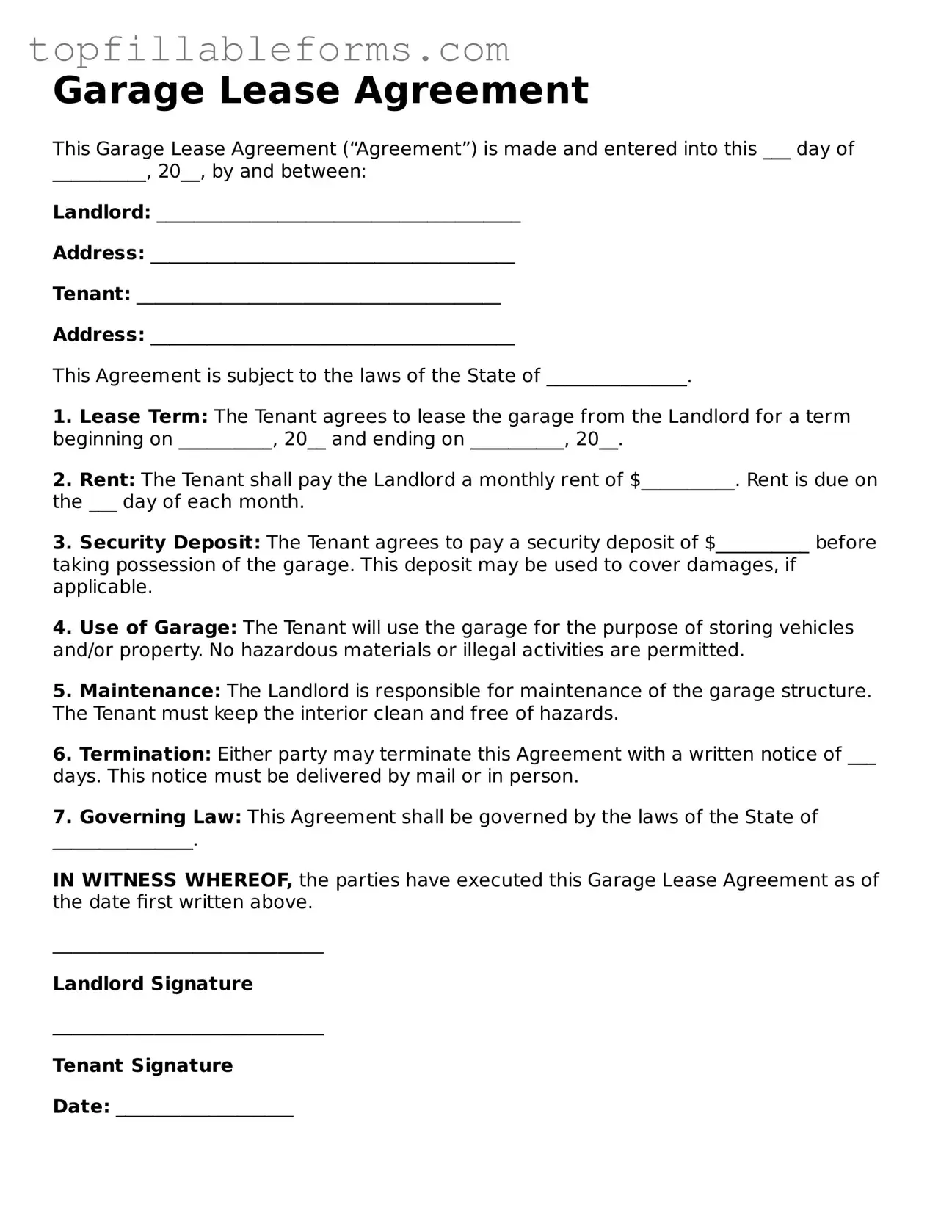Free Garage Lease Agreement Form
A Garage Lease Agreement is a legal document that outlines the terms under which one party rents a garage space to another. This agreement typically includes details such as the rental amount, duration of the lease, and responsibilities of both the landlord and tenant. Having a clear lease can help prevent misunderstandings and ensure a smooth rental experience.
Open Garage Lease Agreement Editor Here

Free Garage Lease Agreement Form
Open Garage Lease Agreement Editor Here
Finish the form now and be done
Finish your Garage Lease Agreement online by editing, saving, and downloading fast.
Open Garage Lease Agreement Editor Here
or
▼ PDF File
